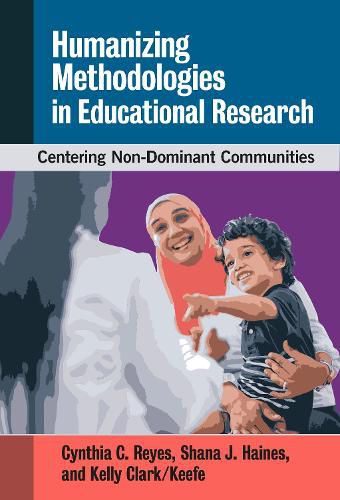Readings Newsletter
Become a Readings Member to make your shopping experience even easier.
Sign in or sign up for free!
You’re not far away from qualifying for FREE standard shipping within Australia
You’ve qualified for FREE standard shipping within Australia
The cart is loading…






This guide is for educational researchers interested in conducting ethically sound qualitative studies with diverse populations, including refugees, documented and undocumented immigrants, and people with disabilities. Through a description of a case study with refugee families, their children, school personnel, and liaisons, the authors highlight humanizing methods-a multidirectional and dynamic ethical compass with relationships at the center. Topics in the book include working within the limitations of Institutional Review Board (IRB) standards, using cultural and linguistic liaisons to communicate with research participants, and creating reciprocity with research participants and their families and communities. Through accessible real-world examples, the text covers the full arc of a project, from conceptualization of design, to navigating human subjects committees, to the complex task of representing ideas to academic and community-based audiences.Book Features:
Engages readers in the complex and sometimes uncertain terrain of working across diverse constituencies in school-community partnership research. Centers practical and ethical tensions in fieldwork as sites from which to learn more about research participants and researcher values. Includes reflections by contributing authors on how to work with non-dominant students, ensuring full equity and inclusion for all learners. Models an approach of metacritical reflexivity and researcher positionality.
$9.00 standard shipping within Australia
FREE standard shipping within Australia for orders over $100.00
Express & International shipping calculated at checkout
This guide is for educational researchers interested in conducting ethically sound qualitative studies with diverse populations, including refugees, documented and undocumented immigrants, and people with disabilities. Through a description of a case study with refugee families, their children, school personnel, and liaisons, the authors highlight humanizing methods-a multidirectional and dynamic ethical compass with relationships at the center. Topics in the book include working within the limitations of Institutional Review Board (IRB) standards, using cultural and linguistic liaisons to communicate with research participants, and creating reciprocity with research participants and their families and communities. Through accessible real-world examples, the text covers the full arc of a project, from conceptualization of design, to navigating human subjects committees, to the complex task of representing ideas to academic and community-based audiences.Book Features:
Engages readers in the complex and sometimes uncertain terrain of working across diverse constituencies in school-community partnership research. Centers practical and ethical tensions in fieldwork as sites from which to learn more about research participants and researcher values. Includes reflections by contributing authors on how to work with non-dominant students, ensuring full equity and inclusion for all learners. Models an approach of metacritical reflexivity and researcher positionality.